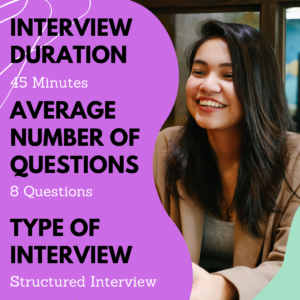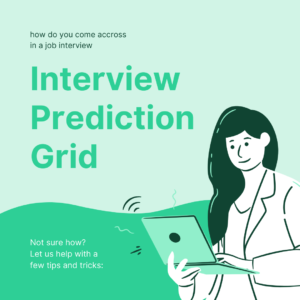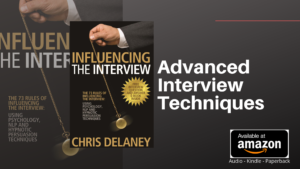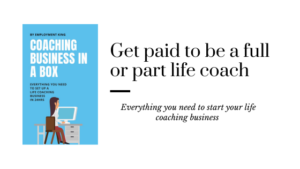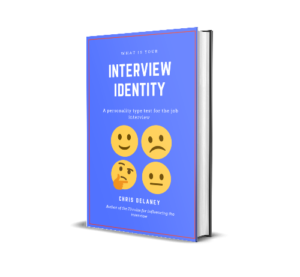It wasn’t so long ago when a graduate could be guaranteed a job. More recently, a graduate applying for work may be unsuccessful in the job interview process because of how an employer perceives the graduate compared to an experienced career professional.
This article will look at the reasons why some graduates are failing job interviews and what current students can do to give themselves a helping hand to advance their career prospects.
Suitable or Unsuitable?
Data shows that the average number of applications for each job role is around 250.
The number of applications per role does very depending on the job position and location, but 250 applicants per advertise job seems correct with previous research. From the 250 applications only 6 candidates, on average, will be offered a job interview.
If a graduate is offered a job interview, they are deemed to be more suitable then 244 other applicants. What this explains, is a graduate who can secure job interviews but not a job offer is doing something wrong in the interview itself.
An alternative viewpoint is the graduate interviews well, but other interviewees, who could also be a graduate but maybe an experience career professional, are better skilled at job interviews.
Either way, if a graduate can secure job interviews but not job offers something needs to change.
From an employers perspective, the job interview is designed to predict the job performance of each applicant. The best perceived performer is offer the job role.
Employers, in the main, use a structured job interview process as research proves that a structured approach is the best way to predict job performance.
What is important, is how a graduate is perceived during the recruitment process.
How Graduates are Perceived in Job Interviews.
A part of perception is comparison.
If for example, a graduate applies for a graduate scheme, all the other applicants will also be graduates creating a level playing field.
For none-graduate roles, applicants are likely to be a mixed bunch of career professionals. This group of candidates may include graduates with no work experience, graduates with work experience, experienced staff with no degree level qualifications.
In this scenario, it is hard for the employer to compare one applicant against the other, as two many completing factors make the logical decision making process a difficult task.
It is the same when purchasing a house. Two houses seem suitable but each have completing factors. One is cheaper but further away from work. One is a 3 bed house with a small garden, the other a 2 bed house with a larger garden in a cul-de-sac. One is in an area with great schools but a high crime rate and the other in an area with a low crime rate but poor schools.
Having a high number of factors to consider is taxing. Instead, the logical mind turns off and the emotion brain gives you a gut re-action: I don’t know why but I prefer house one.
This same process happens with hiring managers, When they initial met the candidates there is an overload of information. One candidate has a degree but the other has 10 years work experience. One candidate has people skills, the other an eye for detail. One candidate is skilled at completing a certain task, the other is an expert in (add criteria). and so on. Again the logical part of the brain closes down and the emotional mind creates a gut reaction: Applicant one seems most suitable for the position.
As the git-reaction decision making process happens at the interview start, the applicants forthcoming job interview answers are filtered through the initial interview identity.
Research shows how people look for evidence to back up their choices. If an employer favors one applicant over another, they will subconsciously look for the positives in the answers of there preferred choice, and look for any negatives in the least preferred choice applicant.
The number of people with a degree is on the rise.
Data shows how the number of higher education applications and starts is on the increase, with 2020 seeing over 720,000 applicants looking to start in a course in 2020.
UCAS recently shared data, showing that there were over 616,000 applicants for 2021 (January deadline analyses)
Prior to the rise of degree-level interviewees, having a degree was viewed as an exceptional attribute. The rule of scarcity says the more common something is, the less value we see in it.
A 2017 Harvard Business School study stated that between 2007-2010 job adverts requiring a bachelor’s degree increased by 10%. The study also found that 37% of employers rank experience as more important then a qualification.
This shows how each employer have different viewpoints on what they believe is important when its comes to recruiting new staff members. The job sector also influences the essential criteria for each job role. In medicine, as an example, applicants will never receive a job offer washout first possessing the required qualifications.
In other sectors, that have previously required a qualification as an entry requirement, we are starting to see a move away from the qualification entry requirement. The tech sector, companies like Google and Apple are focusing on ‘hands-on’ experience.
Where does this leave the graduate?
Don’t be confused here. Having a degree is still viewed as a positive, as a higher educational qualification shows academic ability. And a qualification relevant to the advertised job role infers industry level knowledge.
What employers are now saying is that industry knowledge and skills can be gained just as easily from possessing a number of years working within the industry. Again, job hiring comes down to how an employer perceives an applicant – there predicted job performance.
A buyer’s market.
Data has shown how more people are now progressing into higher education. Graduates, therefore, are at a disadvantage when applying for entry level positions as competition for these roles are high.
In addition to graduate competition, employers, now more than ever before, compare industry experience against the graduates qualification and skill set – their whole package.
Now that job recruitments have changed, employers not stating a qualification as essential, the competition for jobs is increasing. Even is a qualification is essential, in sectors such as medicine, the evidence suggest that more people have a degree then ever before.
The power is truly in the employers hands. Employers, knowing they will receive a large number of applications, can demand more from the applicants. Previously, for entry level jobs roles, a degree was the only requirement. Now, employers can ask for more because they know the number of applications for these positions will be in there hundreds.

Therefore, when in education it is virtual to gain new skills and experiences to help create a positive job interview identity. This can be achieved in various ways:
- Having a side hustle shows business acumen
- Volunteering increases skills and shows work ethic
- Being a graduate mentor helps to develop essential skills; listening, communication and planning
- Work experience, which can include first aid for a medical student or putting on a fringe play for a performance art student, can be used as examples during the job interview question and answer process
- A part-time job brings in an income but also helps to shape your character
- Increase personal skills by joining debate clubs, public speaking classes, being the student union president or taking an active part in the universities board meetings
How to be successful in the job interview
A graduate gaining skills or experiences from one or more of the above ideas can stand out against other graduates with similar qualifications.
Against experienced career professionals, who will often be able to give work-related examples to job interview questions, the graduate needs to prepare their interview answers.
The key to being offered the job role is to be seen as being more suitable then the other applicants.
Often an experienced career professional who hasn’t undertaken a industry related qualification maybe an expert in a particular niche, as they may have only worked in one position/role, which limits their knowledge base.
On the other hand, a graduate during there three year degree will have gain knowledge relevant to the whole job sector. It is this level of knowledge, if communicated confidently, along with skills and experiences gained through volunteering, work experience and side hustles can create a self-assured job interview identity.

To pass the job interview graduates shoud:
- Describe industry related models and theories learnt on higher educational course
- Give situational interview answers by explaining what steps would you take to overcome a potential barrier or to achieve a company objective
- Explain how skills and experiences gained from work experience, voluntary work and side hustles are relevant to the job role
- Use communication skills gained from attending debate clubs or public speaking classes to deliver high-scoring interview answers
In addition, all applicants can stand out in job interviews by:
- Building liking through affinity bias
- Explaining how your personal values match the company values
- Following the three rules for a successful job interview










